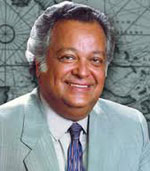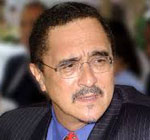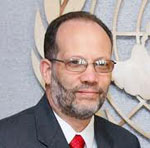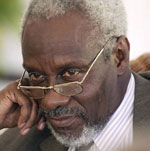2013 was another challenging year for CARICOM Member States, with the fragile state of most of the economies preoccupying their attention, against the backdrop of the launch of a number of new initiatives to bolster the regional integration movement.
At the top of the agenda in 2013 were initiatives to begin the long overdue reform process including overhauling the nerve centre of the regional integration movement, the Georgetown-based CARICOM Secretariat and the preparation of a five-year Strategic Plan.
CARICOM leaders should bear in mind the repeated warnings from St Lucia’s Prime Minister Dr. Kenny Anthony about the grave economic crisis facing the region and its impact, and from Jamaica’s P.J. Patterson who has cautioned that “some decisive steps are urgently required to rescue CARICOM, or else life support may come too late to prevent coma.”
Consultations with Member States on the way forward were held but were rather low- keyed unlike the public consultations in the early 1990’s of the Independent West Indian headed by former Commonwealth Secretary General Sir Shridath Ramphal.

The views of representatives from governments, the private sector and civil society formed the basis of core recommendations in the landmark ‘Time for Action’ report, the centre piece of which was the call for a CARICOM Commission.

Nearly two decades later, there was a call from Trinidad and Tobago’s Prime Minister Kamla Persad-Bissessar for a CARICOM Economic Commission to address the pressing economic challenges facing Member States.
Following the global economic and financial crisis in 2007, Heads of Government were slow to react but eventually in 2009 set up a CARICOM Task Force “to recommend policies, programmes and approaches to lessen the effects of the global recession on CARICOM Member States.” Very little has been reported on the recommendations and which ones have been implemented.
The region’s Central Bank Governors and Finance Ministers have since been mandated to develop a framework for financial risk assessment in the Region as well as a Regional Crisis Management Plan.

The appointment of ‘Change Agents’ in Member States, who are senior officials and some diplomats, was also implemented in 2013. The jury is out on their effectiveness.
Work has also begun on the Strategic Plan. CARICOM Secretary General Irwin La Rocque has said consultants working on the plan are taking into account the 2007 Single Development Vision; the Strategic Plan for Regional Economic Development, priorities articulated by regional leaders and approved policies and action plans in a range of areas, such as agriculture, energy, industry, security, health, youth, Information and Communications

Technology (ICT) and climate change.
In addition to the economic challenges confronting CARICOM Member States, the level of criminality, including brazen day time robberies and increasing violence, continues to cause concern, both within and outside the region.

The Heads of Government have adopted a Regional Crime and Security Strategy. Assistance from the United States, through the Caribbean Basin Security Initiative (CBSI) is reportedly paying dividends.
According to Colin Granderson, Assistant Secretary General, Foreign and Community Relations, the three-pronged approach, which seeks to substantially reduce illicit trafficking, advance public safety and security, and promote social justice, has made “noteworthy steps on the road to improving citizen safety and security in the Region.”
One report that is being widely awaited is from CARICOM’s Legal Affairs Committee tasked with considering the wide-ranging implications for decision-making in the Community and for hassle-free travel, following the decision of the Caribbean Court of Justice (CCJ) in the case of Jamaican Shanique Myrie and the State of Barbados.
The CCJ found that Ms Myrie had been wrongfully denied entry into Barbados, subjected to a humiliating cavity search and unlawfully detained overnight in a cell and expelled from Barbados.”

In making its ruling, the Court held that CARICOM nationals “are entitled to enter CARICOM Member States, without harassment or the imposition of impediment, and stay for up to six months.
At the beginning of 2013, CARICOM’s elder statesman, former Jamaican Prime Minister P.J. Patterson, questioned the purpose of the CARICOM Passport if travelling within the Region is still “like an obstacle race”. The status of plans for a Single Domestic Space (SDS) should be disclosed.
Patterson also observed that Member States were moving “at the speed of a tortoise” in advancing the protocol on the Contingent Rights of CARICOM professionals to permit greater freedom of movement.
One of the bold moves made by CARICOM leaders in 2013 was the suspension of the application by the Dominican Republic for CARICOM membership. Since then, the Presidents of the Dominican Republic and Haiti have agreed to establish a Committee to seek a joint solution to the problems facing the two governments, in which CARICOM will participate.
On the to-do list of the CARICOM Secretariat and more specifically, the Office of Trade Negotiations (OTN), is hopefully the completion of a trade and development agreement with Canada.
The region should also position itself to begin to reap the benefits of the U.S. – CARICOM Trade and Investment Framework Agreement (TIFA) and push for the proposed Summit with the Obama administration.
Improving intra-regional trade relations should also be high on the CARICOM agenda given the prolonged public spat between Jamaica and Trinidad and Tobago governments and private sector over Jamaica’s unease with Kingston’s US$957 million trade deficit with the Community – most of which is the result of imports from Trinidad and Tobago. Barbados exports to CARICOM countries have also been subjected to Non-Tariff Barriers (NTBs).
An editorial in the Jamaican press quite rightly concluded that a call by the influential Private Sector Organisation of Jamaica (PSOJ) that tariffs be imposed on imports from Trinidad and Tobago, is a move that would strike at the heart of the concept of CARICOM as a Single Market.
The last report on the CARICOM Single Market and Economy (CSME) made public stated that there was an overall compliance rate of 64 percent. The Secretary General’s observations that “the governing arrangements for the CSME have become bureaucratic, unwieldy and lethargic” is cause for concern.
In the first half of 2014, the CARICOM Secretariat should provide updates on major initiatives including key issues and recommendations emanating from the region-wide consultations, the CARICOM Strategic Plan, the CARICOM Commission on the Economy, regional transportation issues, crime and security measures, negotiations with Canada and the U.S. and implementation of programmes under the Economic Partnership Agreement (EPA) with the European Union.
A game plan for greater involvement of the region’s private sector in major programmes, as identified at the last meeting of the Council for Trade and Economic Development (COTED), is also critical. In this regard, the resuscitation of the Caribbean Association of Industry and Commerce (CAIC) is timely but how this relates to the long-mooted Caribbean Business Council is not known.
Secretary General La Rocque at the last COTED forum identified as some of the major challenges “minimal export diversification and dependency on very few export markets, inadequate infrastructure, low competitiveness, high transport and transit costs, difficulties attracting foreign investment.”
Improving communication to provide specific, substantial and detailed information on a regular basis is badly needed. Speeches at the beginning of Ministerial meetings are expected but so are substantive reports on decisions taken at those meetings.
CARICOM leaders should bear in mind the Secretary General’s comments during an address to the University of the West Indies (UWI) that Member States will have to “change its modus operandi and the way it thinks about integration” in order to deal with a changing global environment.
The new CARICOM Chairman, St. Vincent and the Grenadines Prime Minister Dr. Ralph Gonsalves, should impress upon his fellow heads of government that progress on several fronts at the February meeting in Kingstown is essential for the credibility of the integration movement and the leaders themselves.
CARICOM leaders should bear in mind the repeated warnings from St Lucia’s Prime Minister Dr. Kenny Anthony about the grave economic crisis facing the region and its impact, and from Jamaica’s P.J. Patterson who has cautioned that “some decisive steps are urgently required to rescue CARICOM, or else life support may come too late to prevent coma.”
(Sandra Ann Baptiste is a Business Consultant and Specialist in Caribbean Affairs)



.jpg)








